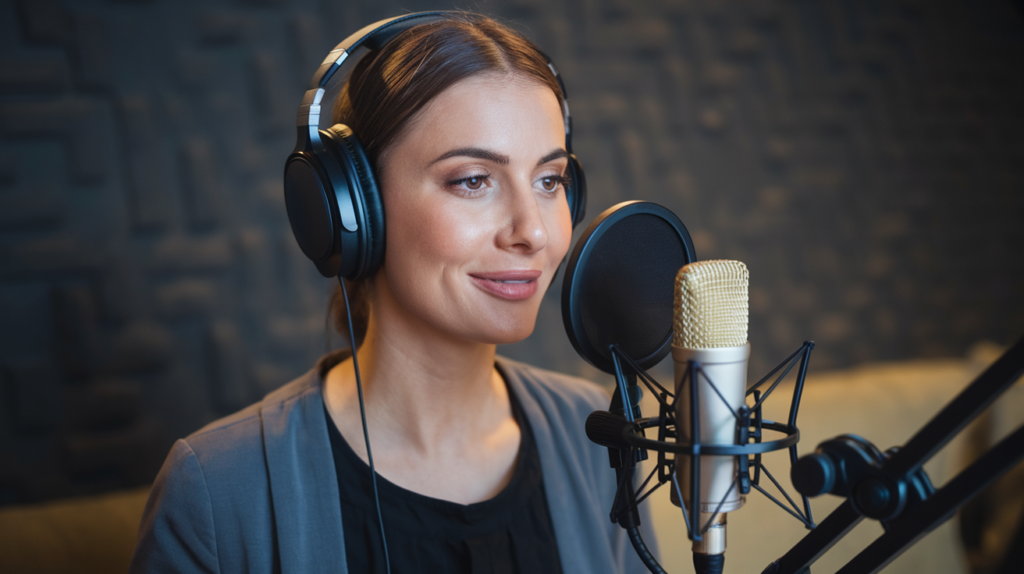Turkish voice overs have become increasingly popular in industries such as entertainment, advertising, e-learning, and corporate communication. Turkey’s rich linguistic history and its unique phonetics make Turkish voice-over services an essential tool for brands and organizations looking to connect with Turkish-speaking audiences.
What Are Turkish Voice Over Services?
Turkish voice over services involve the use of professional voice artists to deliver spoken content in the Turkish language. These services are tailored to meet the needs of diverse projects such as:
- TV commercials and radio ads
- Corporate videos
- Audiobooks
- E-learning modules
- Film and animation dubbing
- Interactive voice response (IVR) systems
These services ensure accurate translation, cultural adaptation, and professional delivery of the content to create a seamless experience for Turkish-speaking audiences.
The Importance of Language in Turkish Voice Overs
The Turkish language has its own unique sound system and grammar, which makes it distinct from other languages. When creating Turkish voice overs, it’s crucial to consider:
- Phonetics and Pronunciation: Turkish is a phonetic language, meaning words are pronounced as they are written. Proper enunciation is key to delivering an authentic message.
- Grammar and Sentence Structure: Turkish uses an agglutinative structure, meaning words can have many suffixes that alter their meanings. Ensuring grammatical accuracy is essential for maintaining clarity.
- Regional Variations: While standard Turkish is used in most voice-over projects, understanding regional dialects can help further localize content for specific audiences.
The Role of Accent in Turkish Voice Overs
Accents can play a significant role in Turkish voice overs. Different accents can evoke various emotions and connections depending on the target audience.
- Standard Turkish Accent: Used for most commercial and corporate projects, as it is understood nationwide.
- Regional Accents: Certain projects may call for accents from specific regions, such as Istanbul, Ankara, or the Aegean region, to add authenticity.
- Neutral Accent: Often preferred for international audiences or multilingual projects to ensure clarity.
Understanding Dialects in Turkish Voice Overs
Turkish has several dialects, which may vary in pronunciation, vocabulary, and intonation. While most voice overs use standard Turkish, awareness of dialectal differences can enhance localization efforts:
- Istanbul Turkish: The standard and most widely understood dialect.
- Eastern Dialects: Common in regions closer to the Kurdish-speaking population.
- Aegean and Mediterranean Dialects: Characterized by softer tones and distinct local expressions.
For projects requiring hyper-localized content, selecting voice artists familiar with these dialects is a smart choice.
Why Choose Professional Turkish Voice Over Services?
Professional Turkish voice over services ensure quality and cultural relevance, which are crucial for audience engagement. Here’s what to expect from a reputable service:
- Expert Voice Talent: Trained professionals with experience in delivering clear and emotive performances.
- Cultural Adaptation: Ensuring the content is appropriate and resonates with the Turkish audience.
- High-Quality Recording: State-of-the-art recording studios and post-production processes for pristine audio.
- Script Localization: Translation and adaptation of scripts to suit linguistic and cultural nuances.
Applications of Turkish Voice Overs
Turkish voice over services cater to a wide range of industries:
- Entertainment: Dubbing for TV shows, movies, and video games.
- E-Learning: Voice overs for online courses, tutorials, and educational apps.
- Corporate: Training videos, internal communications, and promotional content.
- Advertising: Commercials that connect emotionally with Turkish consumers.
- Technology: Voice interfaces for apps, virtual assistants, and GPS systems.
Investing in Turkish voice overs can help you break linguistic barriers, build trust, and create a strong connection with Turkish-speaking audiences.







